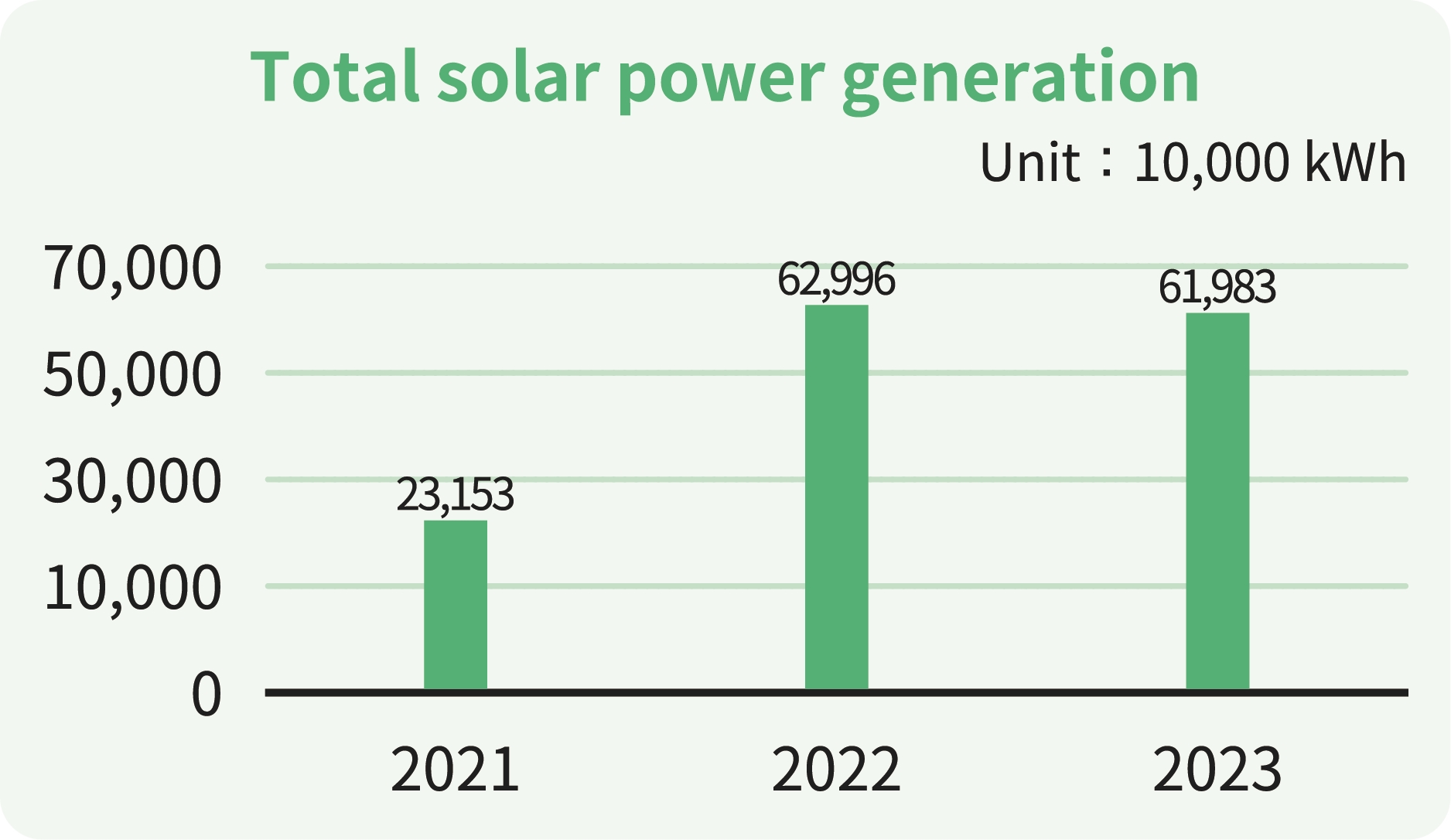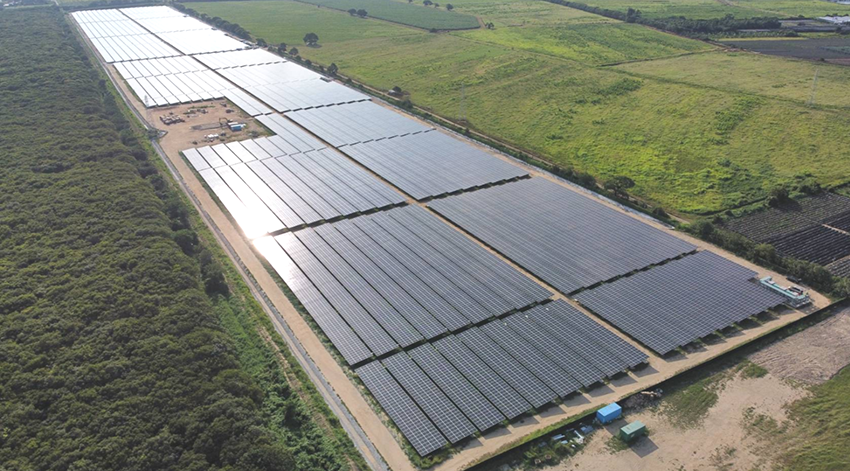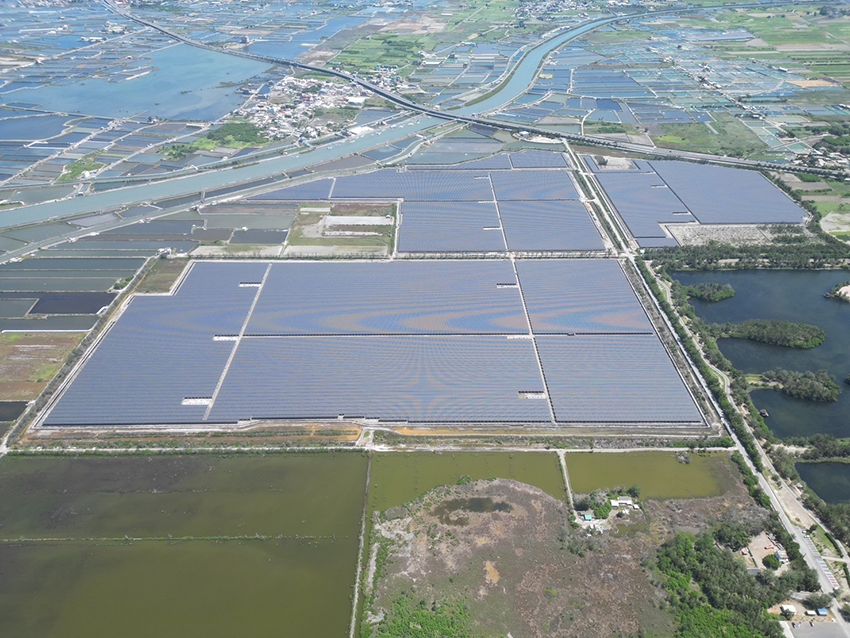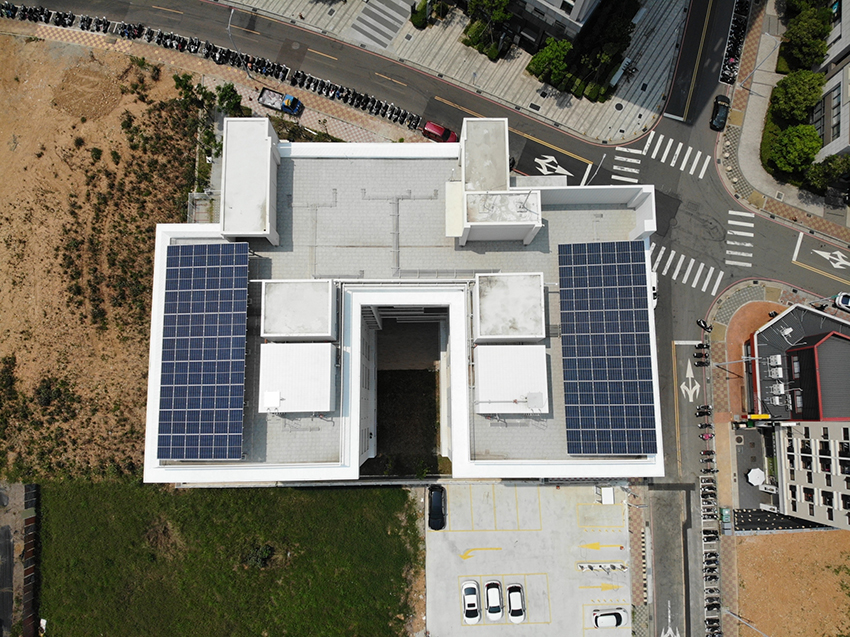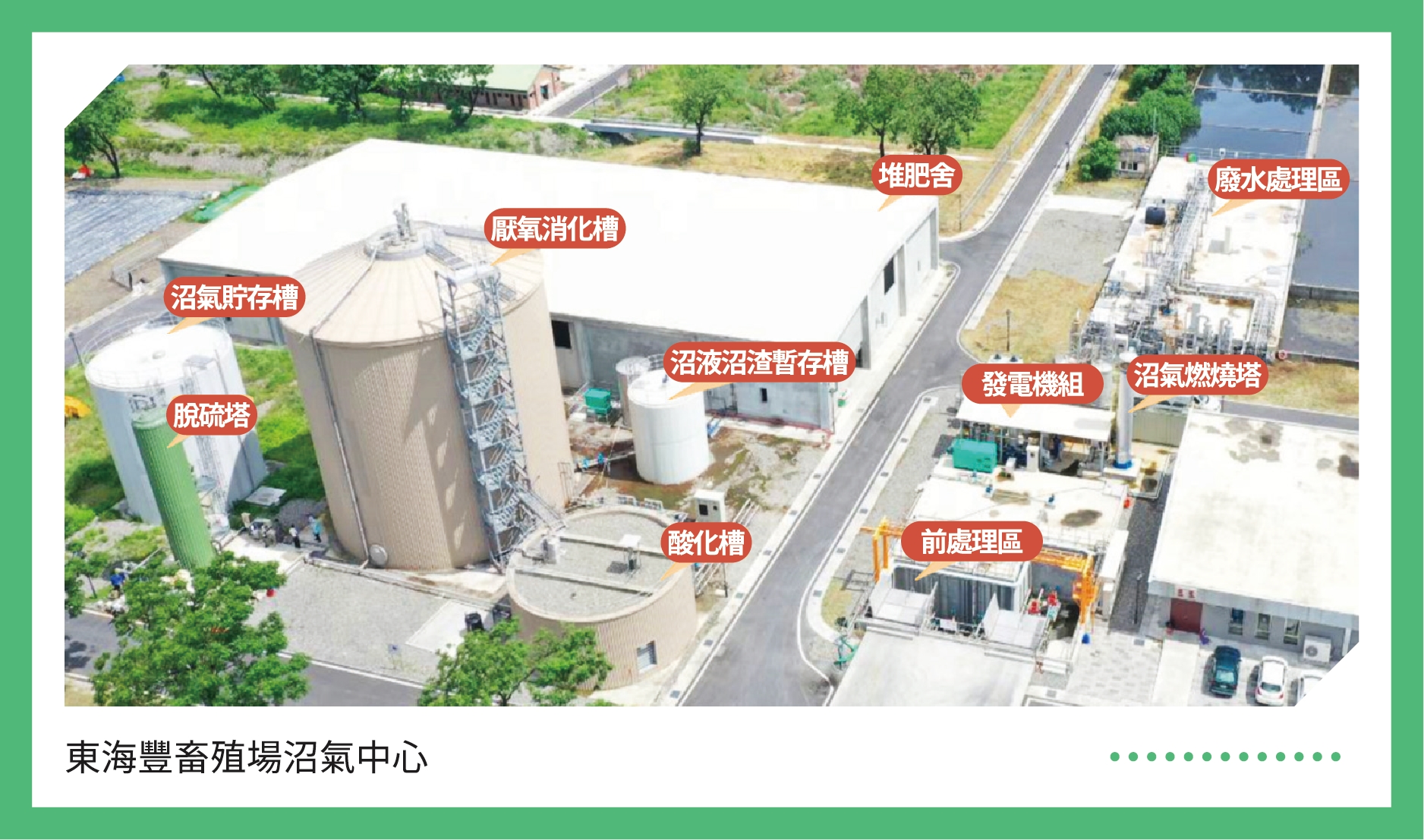TSC actively works in line with the government’s policies for energy transition and circular economy. Under the consideration of the feasibility criteria for technology, economy, and environment protection as well as carbon reduction, the two technologies of solar photovoltaic and biogas power generation were adopted and actively promoted. After the announcement of the government’s Taiwan Net-Zero Emissions by 2050, TSC’s development of the two technologies are still applicable. The results of the two technologies are as follows.
Solar Power Generation Project
TSC takes inventory of building roofs, low-fertility agricultural land, idle land in closed factories, and detention pounds for the installation of rooftop, ground-mounted and floating solar PV energy generation equipment to make full use of the value of space while reducing fossil fuels and environmental pollution. In addition, the investment operations are handled in a fair, just, and open manner. The manufacturers install, maintain and lease the rooftop solar power generation equipment on small-area land to TSC to speed up the development. In 2023, a total capacity of 542.39 MW of solar photovoltaic facilities have been constructed, including 15.83 MW of rooftop equipment, 99.95 MW of floating PV energy generation equipment (detention ponds) and 426.61 MW of ground-mounted (including low-fertility agricultural land). The power generation benefits in the past three years are as follows. The total capacity of solar PV power generation equipment increased in 2023, yet the total annual power generation decreased compared with 2022. This is mainly because of the completion of the grid connection of 207.57MW in 2023. However, since the manufacturer has not yet obtained an Electricity Business License (EBL), its power generation capacity is not calculated for the time being.
| Year | 2021 | 2022 | 2023 |
| Total equipment capacity (MW) | 322.79 | 334.05 | 542.39 |
| Total power generation (10,000 kWh) | 23,153 | 62,996 | 61,983 |
| Increase/decrease ratio | 1,885.67% | 172.08% | -1.61% |
Use the Waste Agricultural Resources to Generate Power to Step Toward Green Independence
TSC uses bagasse, manure and urine from animal husbandry, and agricultural waste resources with biomass potential for renewable energy and power generation. In 2023, the total biogas power generation (excluding REC) and power generation using agricultural waste resources amounted to 11.96 million kWh.
| Utilization of Remaining Sugarcane Bagasse for Cogeneration | Huwei and Shanhua Sugar Factories of the Sugar Business Division make use of the remaining bagasse for power generation for their own use, generating 11.0618 million kWh of electricity in 2023. |
| Use of Pig Manure and Urine for Biogas Power Generation | Livestock Business Division used pig manure and urine for biogas power generation through the anaerobic digestion process. In 2023, 0.9037 million kWh of electricity was produced and sold to Taiwan Power Company. In 2023, the electricity generation decreased compared to 2022 primarily due to the implementation of the agricultural circular pig farm reconstruction investment plan, which involved rebuilding the pig farms adopting the method of simultaneous breeding, dismantling, and construction, leading to a reduction in pig production capacity. Consequently, no additional biomass renewable energy certificates were obtained in 2023. |
TSC owns many pig farms. Starting from 2012, TSC has been invested in the development of technologies related to biogas utilization and made use of anaerobic digestion method for the pig manure and urine to generate biogas for power generation. Biogas power generation equipment has been installed in livestock farms in Haipu, Silin, Liukuaicuo, First and Second of Daxiangying Livestock Farm, and Nanjin Livestock Farm. In 2018, our First Livestock Farm in Da Xiang Yin in Pingtung became the first domestic REC certificate provider in the biomass power generation category. As of 2023, our Da Xiang Yin and Silin Livestock Farms have produced 199 certificates of biomass renewable energy for taking advantage of biogas power generation. Since 2016, to respond to circular economy, improve the environment of livestock farms and for sustainable management, TSC has fully promoted the transformation of livestock farms. The renovation of the Dong Hai Feng Livestock Farm was planned with an investment of NTD 688 million to construct the Dong Hai Feng Agricultural Circulation Park with the 460 KW biogas power generation equipment which was completed in 2020. Based on this experience, TSC continued the renovation projects for its other 13 pig farms. The estimated capacity of the biogas power generation equipment upon completion will be 1,200KW.

